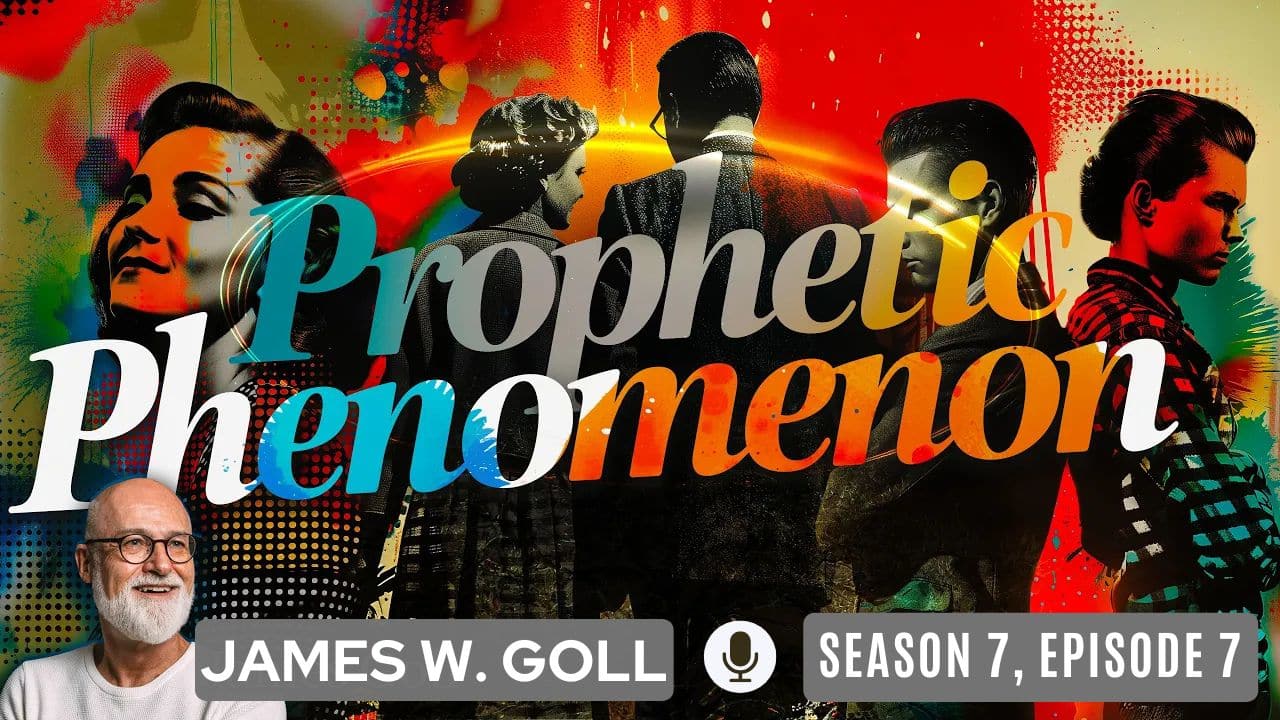“For the word of God is living and powerful, and sharper than any two-edged sword, piercing even to the division of soul and spirit, and of joints and marrow, and is a discerner of the thoughts and intents of the heart.”
Hebrews 4:12 NKJV
Greetings, dear friends. I trust you’ve been blessed by our recent time together as we’ve explored some powerful and timely themes. Today, I want to take a deeper dive into the vital subject of discerning prophetic phenomena—a topic of immense importance as we navigate this season.
The Need for Prophetic Discernment
As I reflect on the years I’ve spent in full-time ministry—this year marking 50 years in vocational ministry and 52 years in the prophetic gift—I am more convinced than ever of the need for proper discernment in the prophetic. Experience, while invaluable, comes with its own challenges. I’ve seen both excesses and weaknesses within the prophetic movement. At times, these extremes have caused confusion, division, and even disillusionment.
However, despite these challenges, the prophetic remains one of the most powerful tools God has given His Church. Our role as prophetic people is to steward the mysteries of God’s will with humility, discernment, and responsibility.
The Dangers of Focusing on Phenomena
One of the pitfalls of prophetic movements—especially as they grow in influence and reach—is an unhealthy focus on the phenomena itself. This focus can lead to a dangerous distortion where the manifestation becomes the goal rather than the authentic revelation of God’s heart.
Throughout history, many movements have become sidetracked by the “wow” factor—the extraordinary, the miraculous, or the sensational. But these experiences, while valid, are not the essence of the prophetic ministry. The essence of prophecy is hearing God’s voice, declaring His Word with accuracy, and bringing His heart into alignment with His people.
The focus on prophetic experiences can easily lead to a kind of spiritual pride: “Look at what I’ve encountered!” “I’ve seen things you haven’t seen!” But I want to caution us here—just because someone has experienced something profound does not mean they are spiritually superior to others. The true mark of a prophet is not how spectacular their experiences are but how faithful they are to the Word of God and the call of God.
The Humility of the Apostle Paul
In the Scriptures, we find a powerful example in the Apostle Paul. In 2 Corinthians 12:2-4, Paul speaks of a man who was caught up to the third heaven. Most scholars believe Paul was speaking of himself, but notice how he handles this revelation:
“I know a man in Christ, who fourteen years ago—whether in the body I do not know, or out of the body I do not know, God knows—such a man was caught up to the third heaven.And I know how such a man—whether in the body or apart from the body I do not know, God knows—was caught up into Paradise and heard inexpressible words, which a man is not permitted to speak. (2 Corinthians 12:2-4 NASB)
Paul doesn’t boast about his encounter. He doesn’t even name himself explicitly. He speaks with humility, acknowledging the sacredness of the experience and the mystery of it. Paul’s attitude is a model for us. If we handle the prophetic with the same humility, we will avoid turning our encounters into trophies of spiritual pride.
In our day, there is often an overfamiliarity with the things of God, a casualness in how we handle prophetic words, judgments, or revelations. When we treat the holy as casual, we risk losing the weight of what God is speaking. The prophetic is not a game. It is a sacred trust, and we must handle it accordingly.
The Role of Prophetic Community and Accountability
One of the ways we can maintain humility and proper perspective in the prophetic is through community and accountability. In Acts 13, we see a powerful model for prophetic community. There, the Holy Spirit spoke to the gathered prophets and teachers, saying, “Set apart for me Barnabas and Saul for the work to which I have called them” (Acts 13:2 ESV).
This moment in the early Church reveals a crucial principle for prophetic ministry: prophetic words should not be isolated or given in a vacuum. They should be confirmed, tested, and validated within a community of believers. Notice that the Holy Spirit didn’t just speak to one individual; it was the collective discernment of the body that brought clarity to the calling of Barnabas and Saul.
This is why I emphasize the importance of relationships in the prophetic. Do you have mature believers—prophets, teachers, and other spiritual leaders—who can help you judge the prophetic words you receive? Do you have a community that can hold you accountable when you step out in faith? Without accountability, we risk wandering off track and becoming subject to deception.
Testing Prophetic Words and Judging the Spirit
One of the most important aspects of discerning prophetic phenomena is the ability to test the spirits. As the Apostle John wrote, “Beloved, do not believe every spirit, but test the spirits to see whether they are from God” (1 John 4:1 NASB). This is not merely about discerning the truth of individual prophecies; it’s about ensuring that the spirit behind the prophecy aligns with the truth of Scripture and the heart of God.
Not every prophetic word should be broadcasted or shared immediately. There are words that are meant to be held, prayed over, and processed in community before they are released to the wider body. As I’ve said before, prophetic words—especially those involving judgment—are delicate. They are jewels that must be handled with great care and humility. In fact, “releasing judgment” is not included in the purpose of the “gift of prophecy” (1 Corinthians 14:1-3), but is withheld for the office of the prophet. (See my book The Prophet for more details on this subject.)
I believe that, in some cases, prophetic words about judgment should not be aired publicly until they have been thoroughly weighed, tested, and confirmed. If we treat these words as toys or as tools for self-promotion, we risk misrepresenting God’s heart and causing unnecessary division.
Discernment: Using God’s Word as a Sword
In Hebrews 4:12 ESV, we are reminded that “the word of God is living and active, sharper than any two-edged sword, piercing to the division of soul and of spirit, of joints and of marrow, and discerning the thoughts and intentions of the heart.” This is one of my favorite verses because it highlights the power of God’s Word to discern the intentions of our hearts.
When we are discerning prophetic phenomena, we must allow the Word of God to be our guide. The Word of God serves as a discerner of the thoughts and intentions of our hearts. The Spirit of God will never lead us in a direction that contradicts Scripture. If a prophetic word cannot be validated by the written Word, then we must set it aside.
Fruit: The Final Test
Finally, when discerning prophetic phenomena, we must always look for the fruit. Jesus taught us that “by their fruits you will know them” (Matthew 7:20 NKJV). The fruit of the prophetic word is often the clearest indicator of its authenticity.
Is the word bringing people closer to Jesus? Is it leading to repentance, humility, and greater love for God and others? Or is it causing division, pride, and confusion? The fruit will reveal the true nature of the prophetic word.
Let’s Pray Together
Father, in the mighty name of Jesus, we want more of Your amazing presence in our lives, families, and cities. We welcome the manifestations and phenomena of the Holy Spirit’s power. We welcome the gifts, the fire, and the wind of the Spirit. But help us to avoid the ditches and the excesses as well. We desire the wisdom and the truth that come from the combined revelation of Your Word and Your Spirit. Help us to learn from the past outpourings and revivals while not building monuments to them. We want to bear good spiritual fruit, and we want to bring glory to Your name. We want to be discerning believers in Jesus’ name. Amen and Amen!




